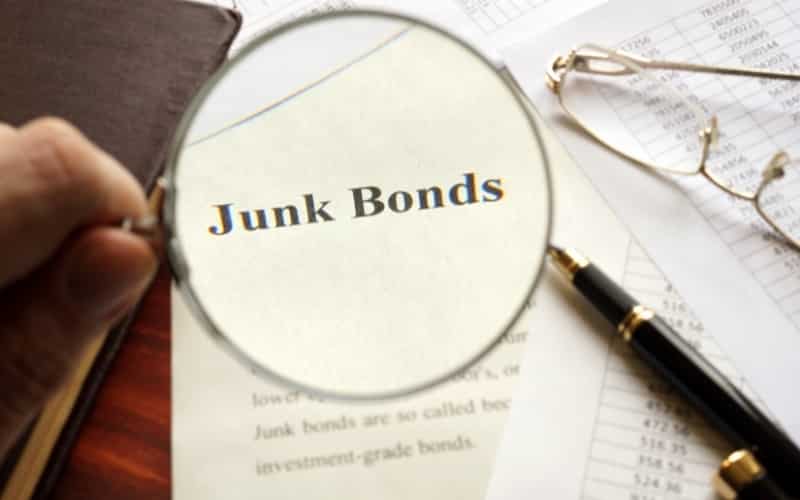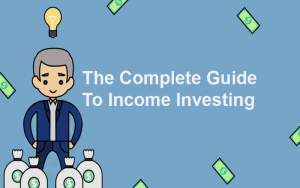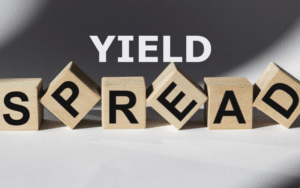A junk bond is a debt issued by a firm that lacks an investment-grade credit rating. Junk bonds are sometimes considered high-yield bonds since their interest payments are greater than those of a typical corporate bond.
If a business goes bankrupt, junk bonds are less likely to cause permanent portfolio losses than many equities.
A fallen angel bond is a debt initially issued by an investment-grade business but was later reduced to “junk” status.
This might happen if the company starts losing money, incurs too much debt, or operates in a declining industry. Junk bonds have a higher default risk than most corporate and government obligations.
Junk bonds benefits
- The bond’s value may potentially grow. You may have found an attractive investment if you are confident in the future of a firm that you believe is unfairly subjected to a low credit rating.
- Investing in a high-yield bond is still safer than investing in the same company’s shares. In the event of an enterprise’s collapse, bondholders get paid first. If the firm does go bankrupt, there is still a chance to recoup something.
- The interest payments have the potential to be more reliable than returns from equities. As long as a firm does not default, the income provided by any bond will remain steady.
- High-yield bonds issued by a recession-proof firm may be undervalued. Some businesses, such as bargain merchants and gold miners, prosper during a recession. Such “dangerous” firms may be no riskier than highly rated corporations in recession-prone industries.
- A high rate of return and diversification across asset types, such as income and asset returns.
Junk bonds drawbacks
- During a recession, high-yield bonds may not appreciate as much as investment-grade bonds. The value may fall since they are already seen as risky and may become much riskier if the economy enters a slump.
- Bond prices may rise as a result of a stronger credit rating, but they may also fall.
- High-yield bonds are issued when the risk of default is judged to be higher than that of comparable firms. Because a default might result in the loss of your whole investment, risk-averse investors may wish to avoid high-yielding bonds. WARNING: High default risk might result in severe losses for investors.
- Unlike cash, many investors are unwilling to acquire high-income bonds due to their reputation, making it hard to resell them.
- The central bank’s interest rate controls the prices of bonds. When interest rates go up, junk bonds will be less valuable; by contrast, bond values will generally increase if interest rates drop. This applies to all forms of bonds, as they are impacted by changes in the borrowing costs of their owners.
How to Invest in High-Yield Bonds
Purchasing a high-yield bond is quite straightforward. Here’s how you can do it.
Purchase through an agent. This is arguably the most popular and easiest way to buy any bond. You can bond through an internet broker.
Some brokers can even advise you on the bonds you need to achieve your specific objectives. However, be sure that the broker that you pick has a good reputation and gives fair fees.
Direct purchase is another option to buy bonds. New bonds can be purchased without paying a fee from the firm directly. Some commercial banks also sell bonds without charge fees. However, generally, this is reserved for customers who hold large accounts.
Who invests in high-yield bonds?
High-yield bond buyers include those investing through direct ownership and/or mutual funds, insurance companies, pension funds, and other organizations.
Individual investors buy high-yield bonds as part of a well-diversified investment portfolio. They also engage in this market through mutual funds that invest in high-yield bonds.
Insurance firms put their own money into high-yield bonds. They also participate in the market via “separate accounts” in variable insurance and annuity products.
Investing pension money in high-end bonds is intended to provide greater returns than the investment-grade bonds available.
Debt securities offering several benefits of investment-grade obligations (IPBs) are collateralized bond obligations (CBOs). Often CBOs comprise a pool of high yield bonds that are varied by issuers and businesses. The collateral gives the pool a rating that is greater than any single bond in the pool.
The bottom line: the higher the risk, the greater the reward
A bond is like a credit. If you buy the bond, the issuer pays you interest for the privileges of borrowing your cash. The issuer borrows it by issuing a bond.
A bond, say 10 percent, will be issued with a particular coupon that is constant.
Bonds may be bought and sold similarly to stocks, so their value fluctuates.
Yield changes according to the bond market price. The smaller the demand for bonds, the lower the prices and the greater the return.
Another approach is to see how much investors pay to absorb the bond risk.
For example – a company issues a £100 bond at a 10% coupon, paying £10 a year interest. Over time, the company’s business suffers. The price of the bond falls to £50, but it is still paying out a £10 coupon, so the yield has gone from 10% to 20% (from £10/£100 to £10/£50).
“Super companies high-end debt” is debt emitted by BBB- or below-ended companies. Such bonds have a higher chance of default. However, they’re also more rewarding – the higher the risk, the higher the reward.
Many investors are not authorized to engage in high-income debt, and only bonds issued by “investment grades” are permitted to place their money.
The debt can be seen as hazardous when the enterprise-issuer is tiny or under financial pressure, making it less likely to pay off the debt.



